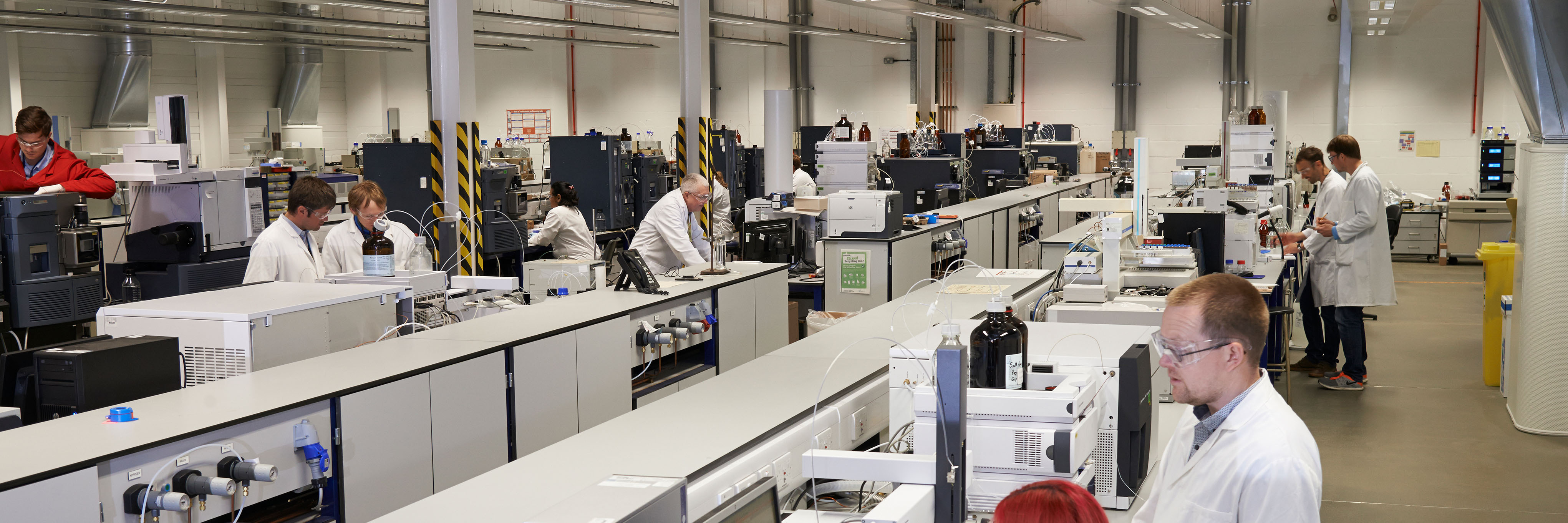Join us at SETAC 2024
The year looks encouraging for the SETAC Europe 34th Annual Meeting, 5 – 9 May 2024 in Seville, Spain.
The Society of Environmental Toxicology and Chemistry (SETAC) is a not-for profit, global professional society established in 1979 to provide a forum for individuals and institutions engaged in education, research and development, ecological risk assessment and life-cycle assessment, chemical manufacture and distribution, management and regulation of natural resources, and the study, analysis, and solution of environmental problems.
This years overarching theme for the event is "Science-Based Solutions in Times of Crisis: Integrating Science and Policy for Environmental Challenges" and is one not to be missed!
Fera will be exhibiting at the event in Seville on a brand new double stand to present and discuss with other delegates the work we do and the original thinking we have to bring to the scientific world.
Join us on stand 246
To meet with our scientist on the SETAC stand please book a meeting using the button below.
Our Event Speaker
PhD Student
Beth Adams is one our PhD students based at the University of Leeds and Fera, presenting at the SETAC 2024 event.
Her research project is looking at the fate and potential impacts of veterinary antibiotics, and feed additives in the environment after use in the poultry industry.
This work has taken a multidisciplinary approach and used a variety of different techniques such as LCMS, microbiological techniques and metabarcoding to investigate the variability of poultry manure from different farms and the subsequent effect on antibiotic and feed additive degradation.
Beth will be presenting her results from this work in the Pharmaceuticals in the Environment – Risk Assessment, Regulation and New Insights Into the Science Globally session at the SETAC Europe 34th Annual Meeting in Seville.
When: Thursday 9th May
When: 11:35am
Where: Italica (FIBES 1, FIBES)
Our Experts Attending
To connect with our team at the SETAC event you can:
Visit stand 246
Contact an expert via Linkedin
Book a meeting with them using the button below
Head of Ecotoxicology
Lisa has worked in a GLP environment for over 30 years in a variety of companies ranging from small contract facilities to multi-national manufacturing organisations.
Prior to joining Fera, Lisa spent 8 years working for a contract research facility that specialised in testing biopesticides and other low-risk crop protection technologies.
Katy Hamnett
Senior EFate Study Director
Katy has over 12 years working in the environmental fate and metabolism area. Katy performs the role of GLP Study Director and is responsible for the management and delivery of both regulatory and non-regulatory studies.
She has experience in study directing soil, sediment, manure, photolysis, hydrolysis, and water degradation studies, in addition to adsorption/desorption and BCF. Katy also works with non-radiolabelled substances and radiolabelled substances including both 14C and tritium.
Senior Bee Ecotoxicologist
Selwyn is responsible for the delivery of Fera’s pollinator work and for the development and expansion of the business and science capabilities within the team. He is a highly experienced GLP Study Director with over 25 years hands on experience in the delivery of countless GLP studies, ranging from the standard OECD first tier laboratory testing through to higher tier and bespoke studies.
Operations Manager - Chemistry
Leveraging his solid scientific background, Phil understands the diverse needs of Fera's clients.
His responsibilities encompass managing the balance between commercial project demands, staff development, and future planning, taking into account project and business risks.
Deputy Head of Efate and Metabolism
With 10 years experience working within the Efate and Metabolism team at Fera and a background in chemistry, Vic also performs the role of GLP Study Director for commercial and research projects on a variety of chemical classes and regulations.
Vic has experience in study directing soil, sediment, manure, photolysis and water degradation studies, in addition to adsorption/desorption, plant uptake factor, ready biodegradability, BCF and aged sorption studies using both radiolabelled and non-radiolabelled chemical substances.
Aquatic Biologist
Her role is to deliver high-quality aquatic ecotoxicology studies and she has over 20 years practical experience of working with aquatic organisms in an ecotoxicological setting.
Karen has been involved in the development of methodologies for assessing the effects of chemicals on reproductive physiology and will be responsible for expansion of the science capabilities within the group to evaluate chemicals for endocrine disruption.
PhD Student
Isabel Navarro Law, is one of our second-year PhD students, studying at the University of York and Fera, and is conducting research using novel mesocosms at Fera to explore the effects of herbicide exposure on macrophyte communities.
She will be presenting two posters at SETAC 2024 in Seville under the session 'Aquatic and Terrestrial Plant Ecology, Ecotoxicology, and Risk Assessment.' Focusing on the following topics:
- Abiotic factors influencing macrophyte distribution, drawing from a literature review and long-term sampling study.
- Mesocosm experiments, investigating the long-term impact of single and mixed herbicide treatments on macrophyte recovery and community composition.
PhD Student
Isla is a third-year PhD student at the University of York, with supervisors situated at Fera, JNCC, and the University of Sheffield. Her research concentrates on assessing the potential risks associated with companion animal parasiticides in surface waters. A poster presentation is scheduled for SETAC 2024 in Seville, within the session titled "Pharmaceuticals in the Environment – Risk Assessment, Regulation, and New Insights into the Science Globally."
The poster delineates an ongoing study that monitors concentrations of pet parasiticide compounds in surface water and sediment in England.
PhD Student
Isla Stubbs, is one of our first-year PhD students, studying at the University of York and Fera, and is conducting a project focused on the potential risk of antidepressants in agriculture, looking at their fate in soil systems.
She will be presenting a poster at SETAC 2024 in Seville in the session "Pharmaceuticals in the Environment – Risk Assessment, Regulation, and New Insights Into the Science Globally" outlining: Literature review and planned/ongoing studies on antidepressants including soil sorption and degradation studies.
Chemical Regulation
Fera's expertise covers a range of Chemical Regulation services including:
- Ecotoxicology
- Environmental Fate & Metabolism
- Efficacy Services
- GLP Analytical Chemistry
- Bee Ecotoxicology














